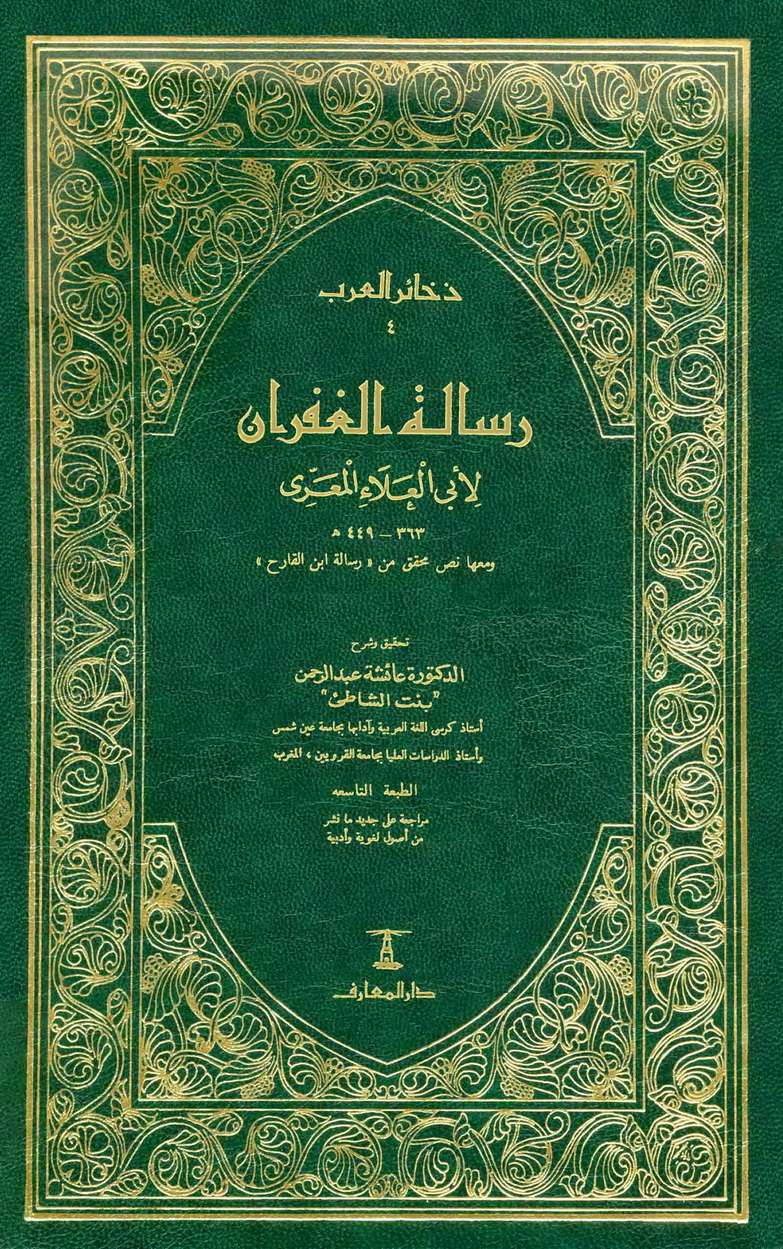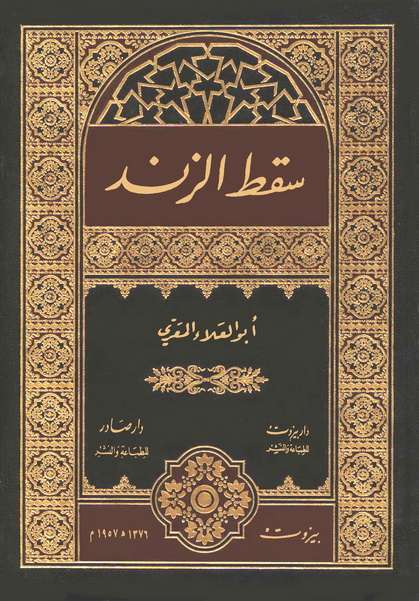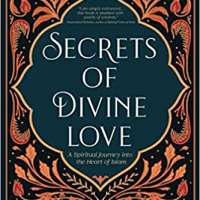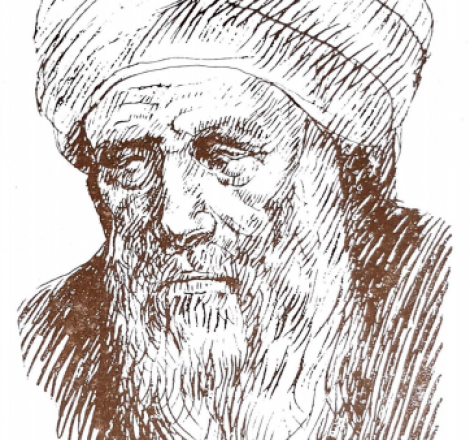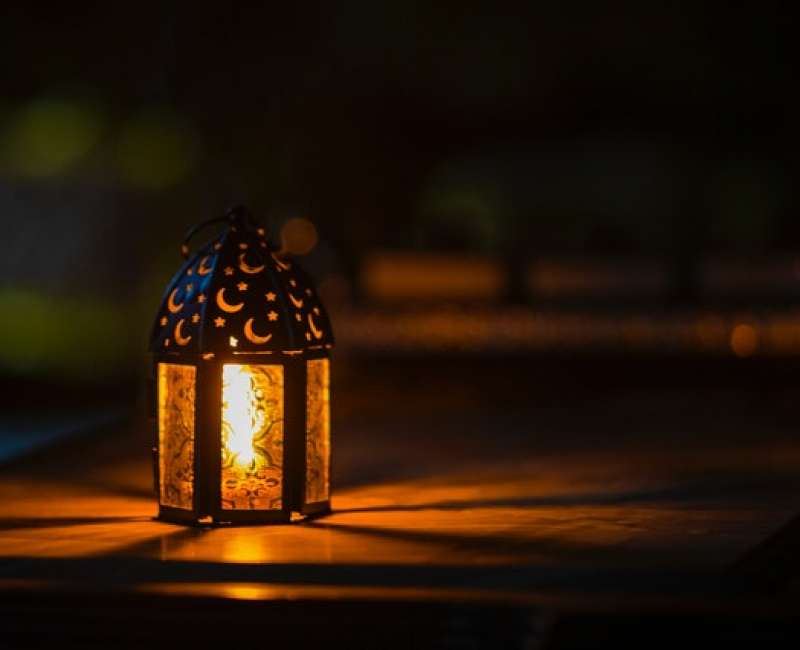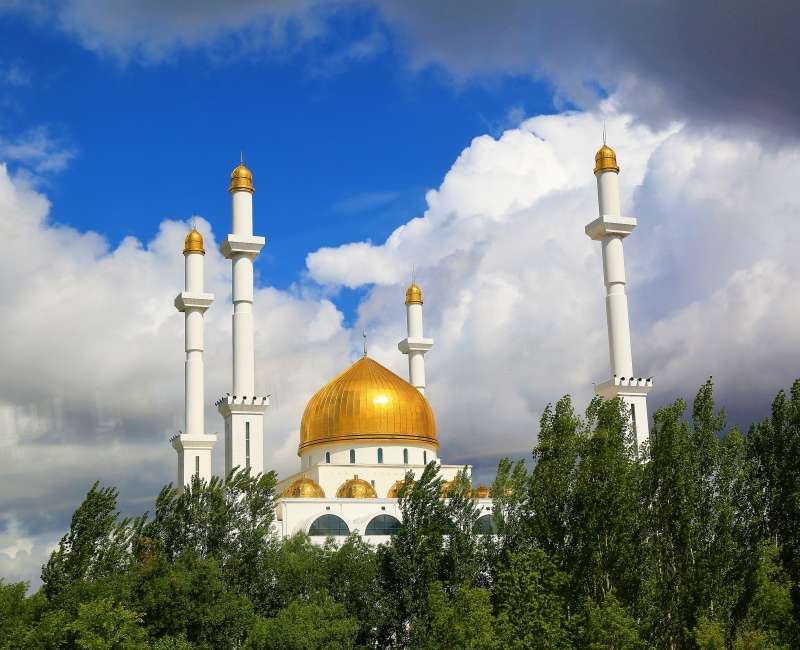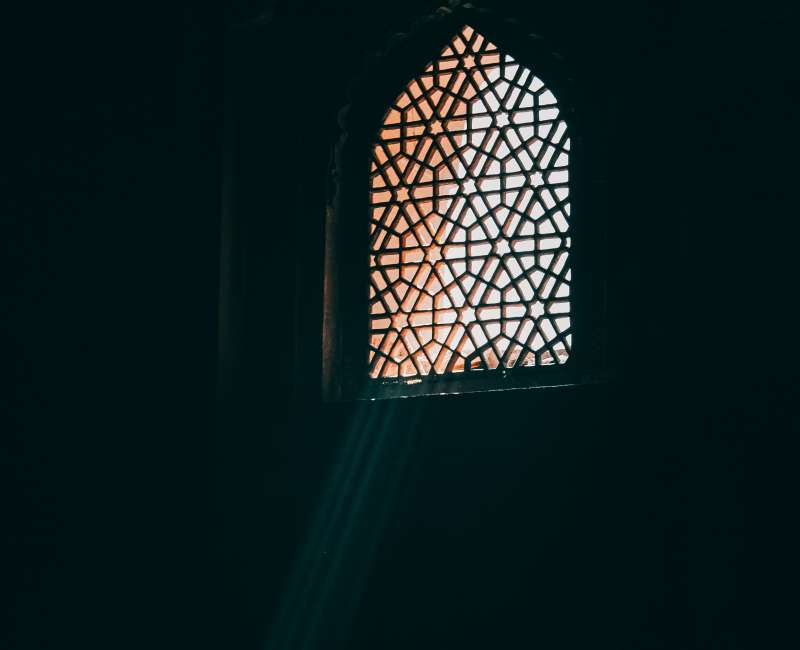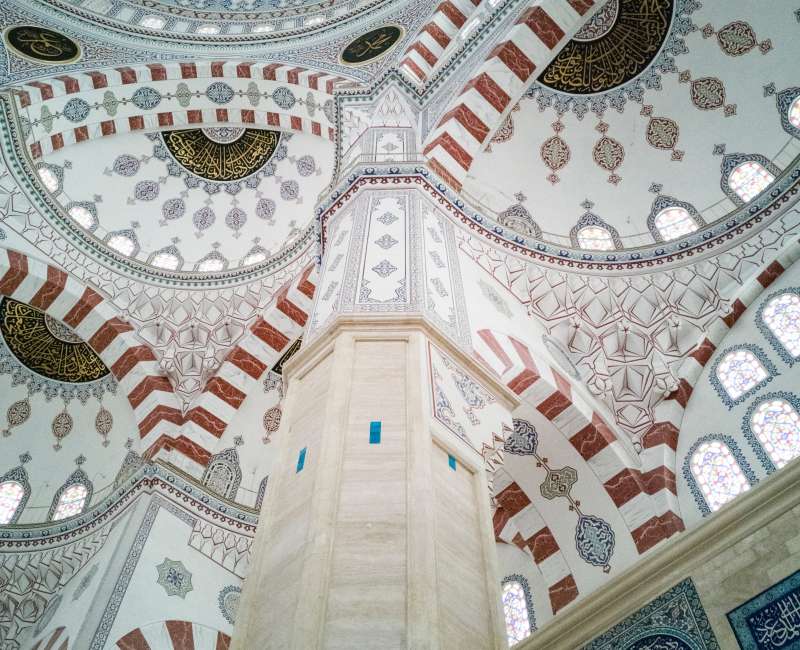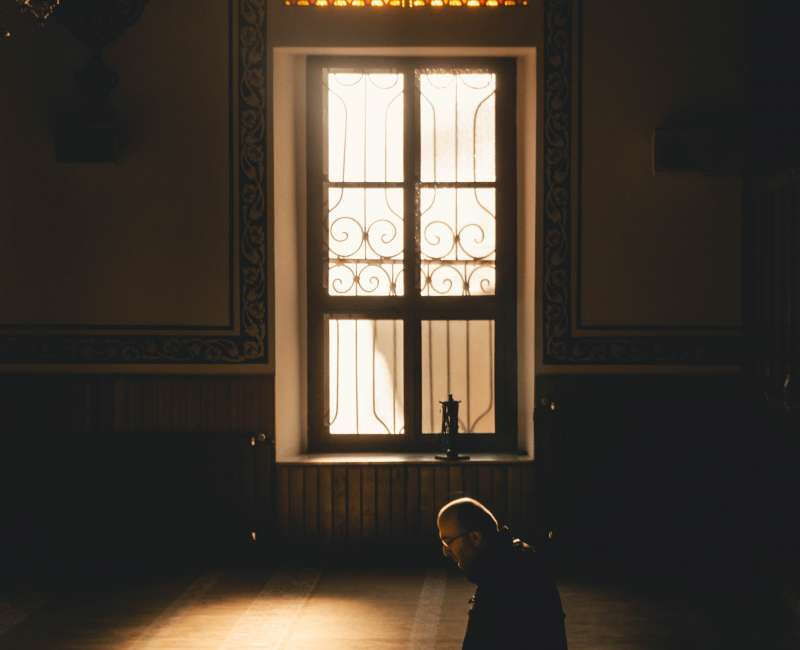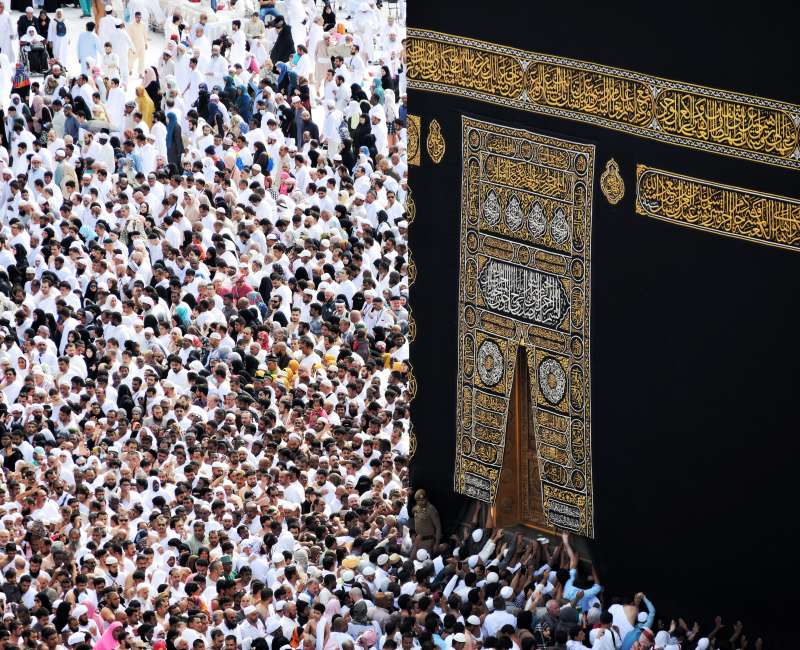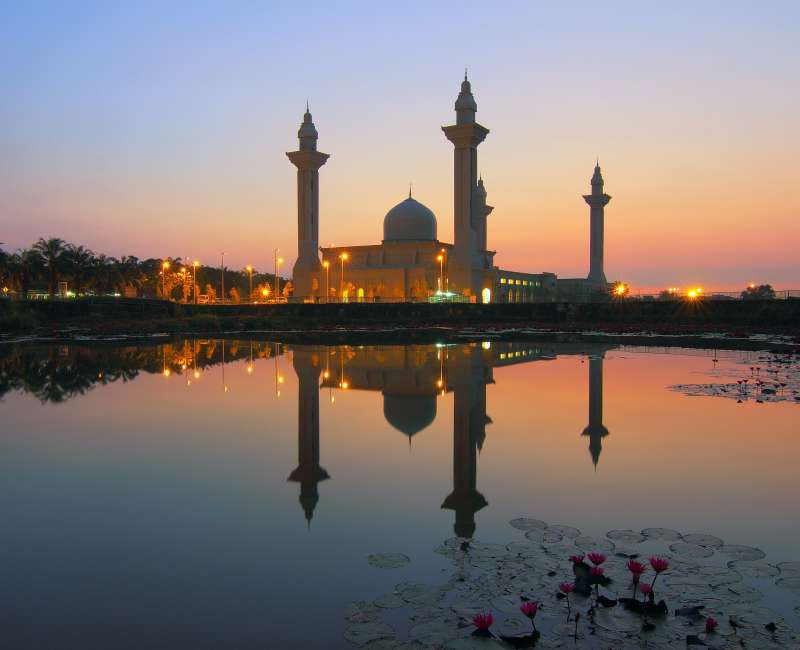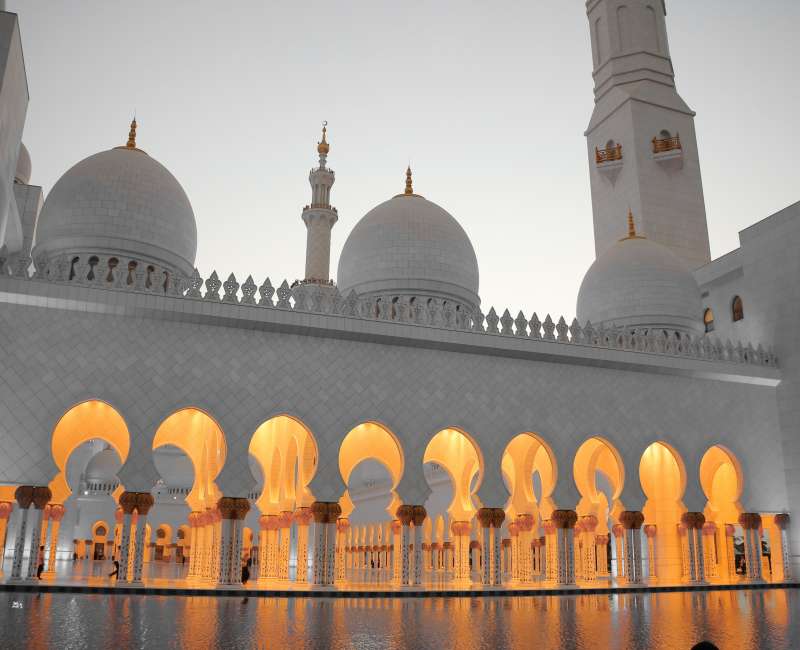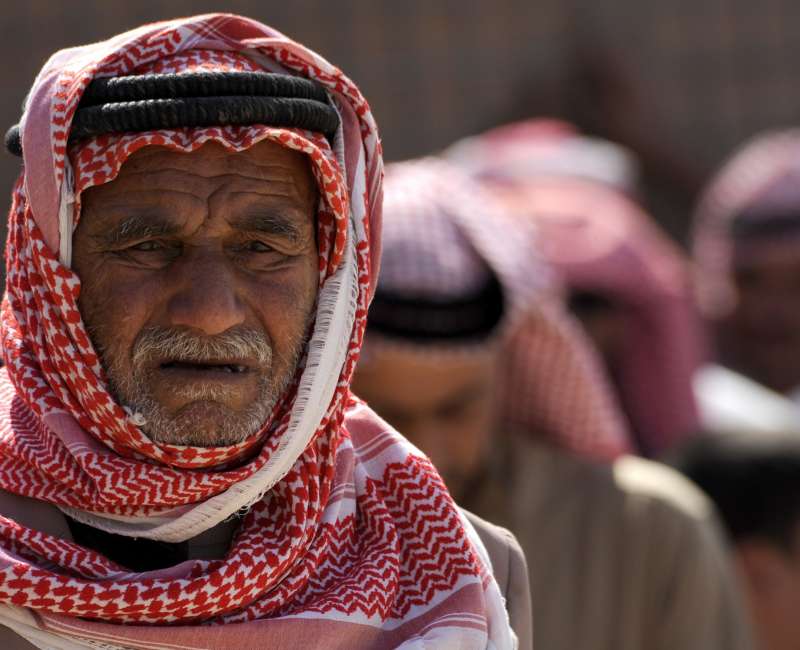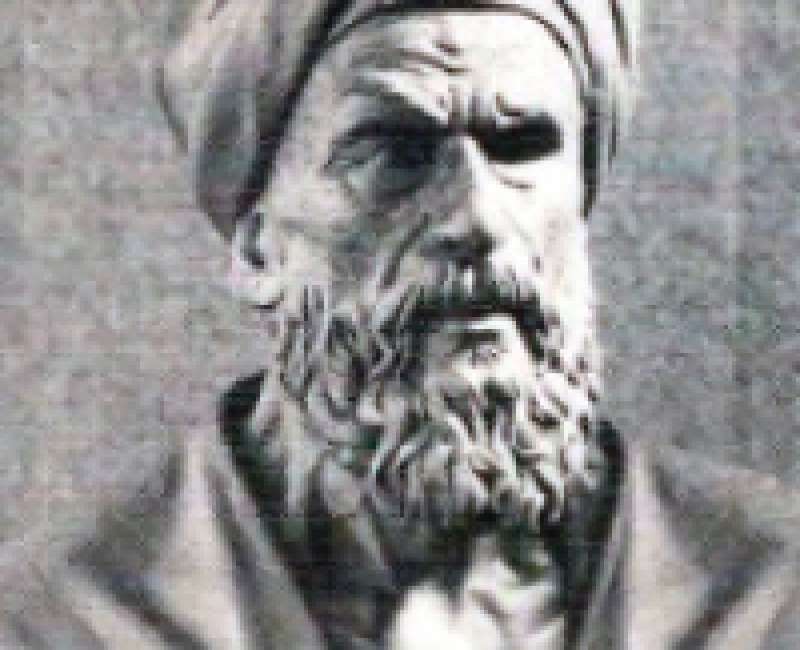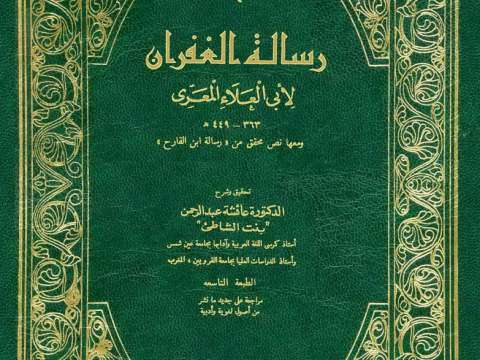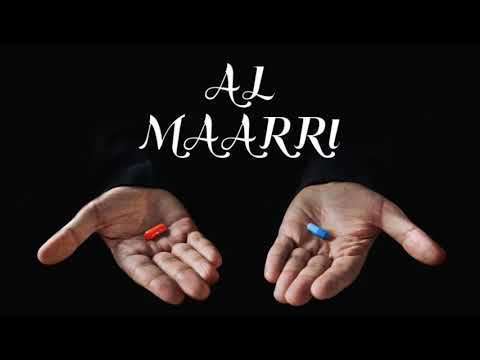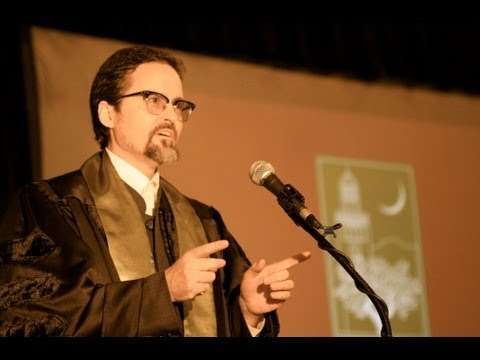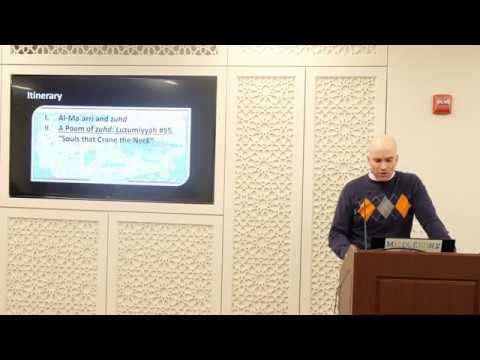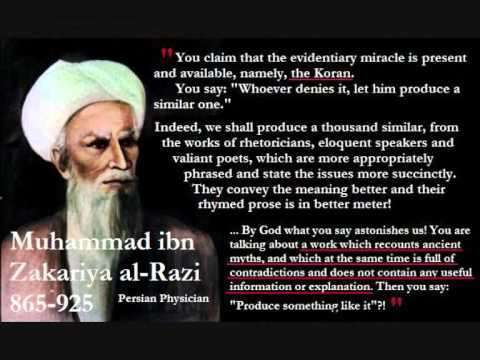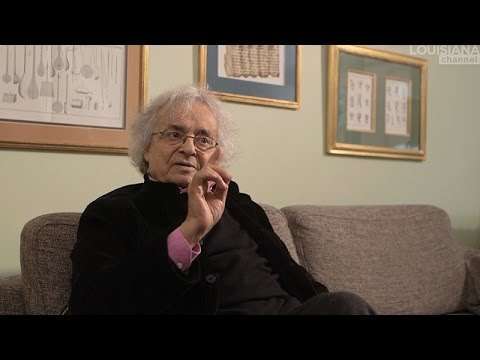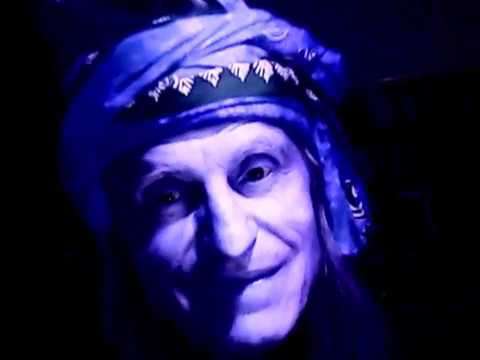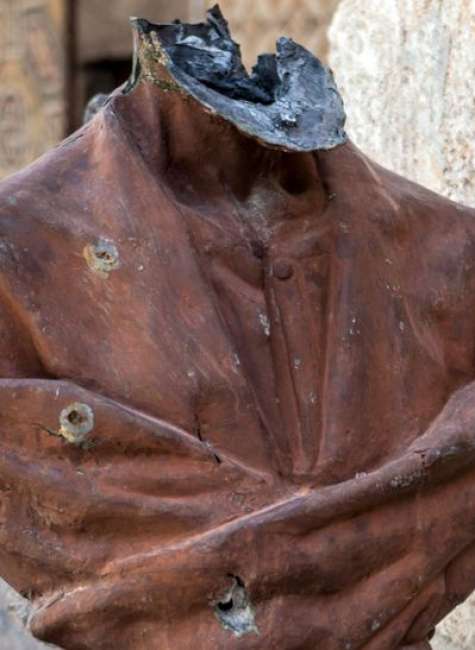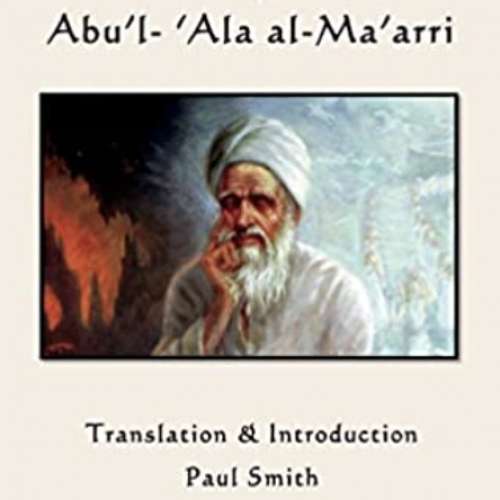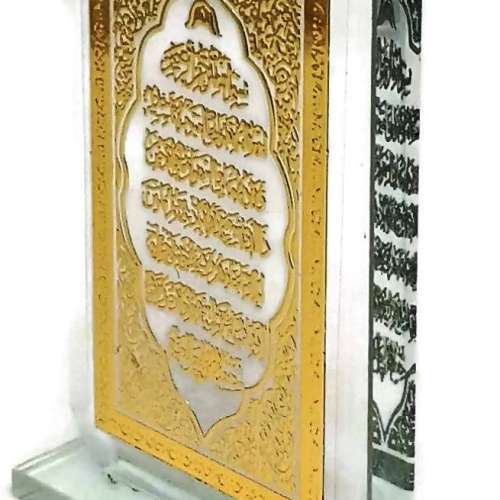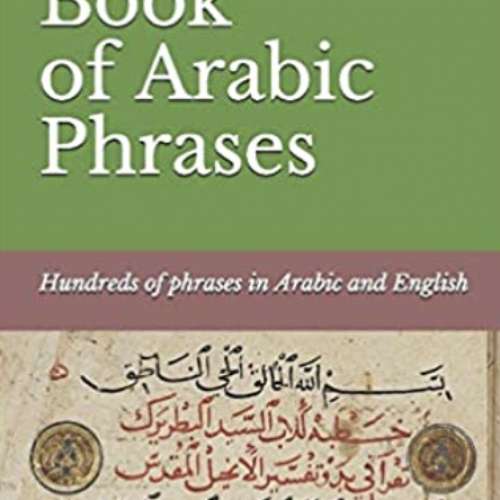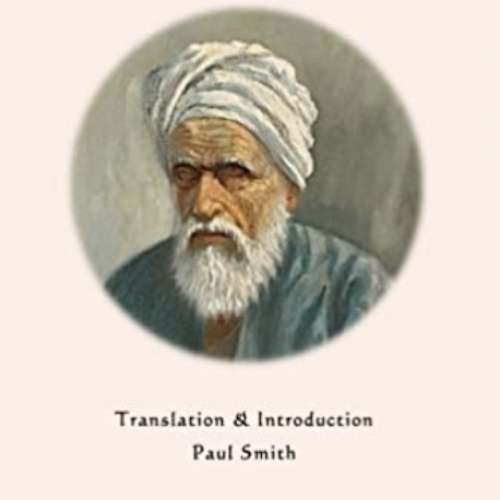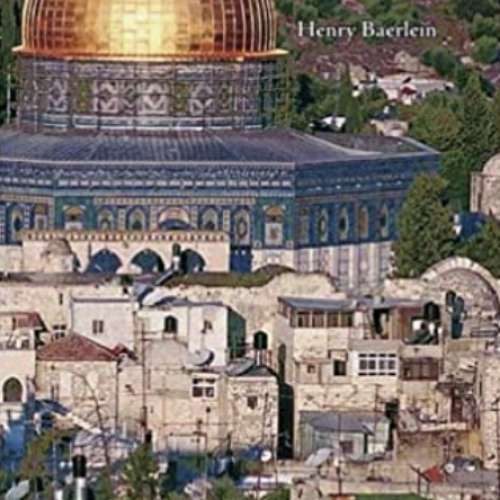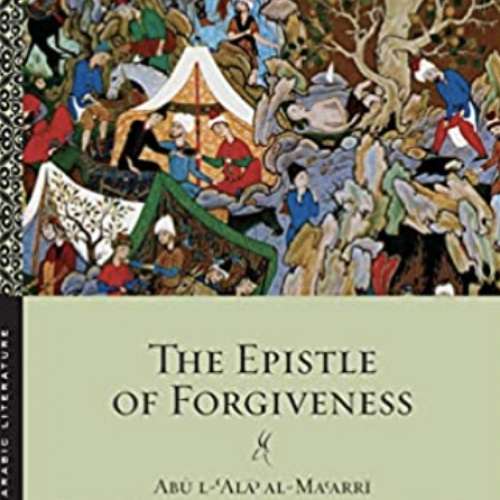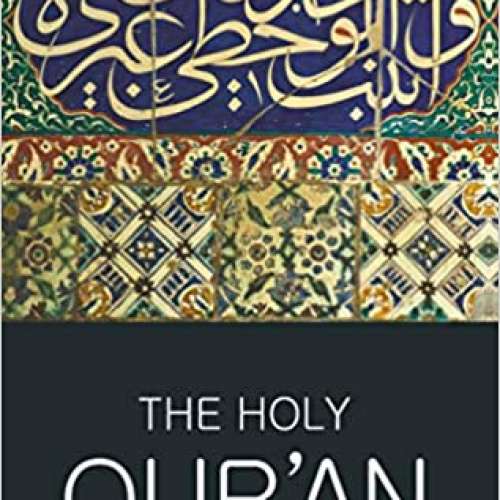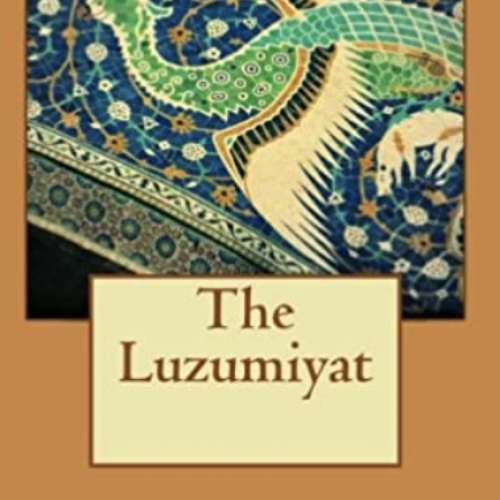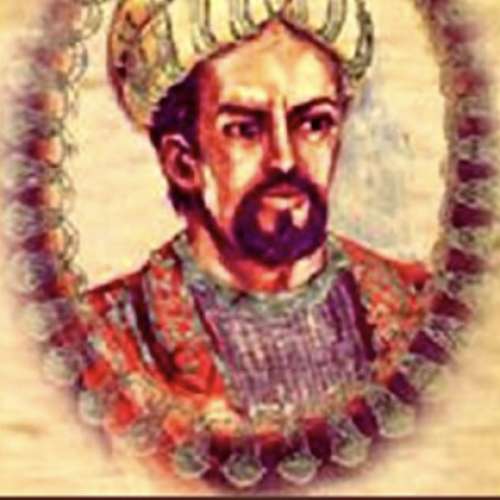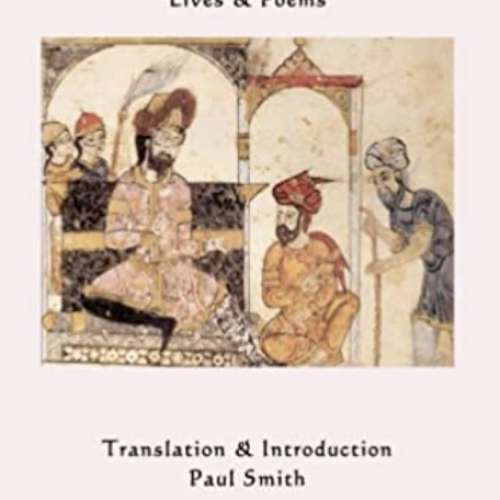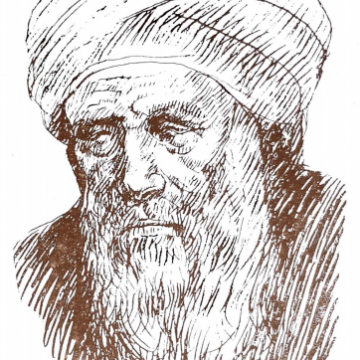

Abu al Ala Al Ma'arri (0973-1057)
Abu al-ʿAlaʾ al-Maʿarri, also known under his Latin name Abulola Moarrensis, was a blind Arab philosopher, poet, and writer. Despite holding a controversially irreligious worldview, he is regarded as one of the greatest classical Arabic poets.
Born in the city of Ma'arra during the Abbasid era, he studied in nearby Aleppo, then in Tripoli and Antioch. Producing popular poems in Baghdad, he nevertheless refused to sell his texts. In 1010, he returned to Syria after his mother began declining in health, and continued writing which gained him local respect.
Described as a "pessimistic freethinker", al-Ma'arri was a controversial rationalist of his time, citing reason as the chief source of truth and divine revelation. He was pessimistic about life, describing himself as "a double prisoner" of blindness and isolation. He attacked religious dogmas and practices, was equally critical and sarcastic about Judaism, Christianity, Islam and Zoroastrianism, and became a Deist.
He advocated social justice and lived a secluded, ascetic lifestyle. He was a vegan, known in his time as moral vegetarianism, entreating: "do not desire as food the flesh of slaughtered animals / Or the white milk of mothers who intended its pure draught / for their young". Al-Ma'arri held an antinatalist outlook, in line with his general pessimism, suggesting that children should not be born to spare them of the pains and suffering of life.
Al-Ma'arri wrote three main works that were popular in his time. Among his works are The Tinder Spark, Unnecessary Necessity, and The Epistle of Forgiveness. Al-Ma'arri never married and died at the age of 83 in the city where he was born, Ma'arrat al-Nu'man. In 2013, a statue of al-Ma'arri located in his Syrian hometown was beheaded by jihadists from the al-Nusra Front.
Life
Abu al-'Ala' was born in Ma'arra, modern Ma'arrat al-Nu'man, Syria, near the city of Aleppo, in December 973. At his time, the city was part of the Abbasid Caliphate, the third Islamic caliphate, during the Golden Age of Islam. He was a member of the Banu Sulayman, a notable family of Ma'arra, belonging to the larger Tanukh tribe. One of his ancestors was probably the first qadi of Ma'arra. The Tanukh tribe had formed part of the aristocracy in Syria for hundreds of years and some members of the Banu Sulayman had also been noted as good poets.
He lost his eyesight at the age of four due to smallpox. His later pessimism may be explained by his virtual blindness. Later in his life, he regarded himself as "a double prisoner", which referred to both this blindness and the general isolation that he felt during his life.
He started his career as a poet at an early age, at about 11 or 12 years old. He was educated at first in Ma'arra and Aleppo, later also in Antioch and other Syrian cities. Among his teachers in Aleppo were companions from the circle of Ibn Khalawayh. This grammarian and Islamic scholar had died in 980 CE, when al-Ma'arri was still a child. Al-Ma'arri nevertheless laments the loss of Ibn Khalawayh in strong terms in a poem of his Risālat al-ghufrān. Al-Qifti reports that when on his way to Tripoli, al-Ma'arri visited a Christian monastery near Latakia where he listened to debates about Hellenistic philosophy, which planted in him the seeds of his later scepticism and irreligiosity; but other historians such as Ibn al-Adim deny that he had been exposed to any theology other than Islamic doctrine.

In 1004–05 al-Ma'arri learned that his father had died and, in reaction, wrote an elegy where he praised his father. Years later he would travel to Baghdad where he became well received in the literary salons of the time, though he was a controversial figure. After eighteen months in Baghdad, al-Ma'arri returned home for unknown reasons. He may have returned because his mother was ill, or he may have run out of money in Baghdad, as he refused to sell his works. He returned to his native town of Ma'arra in about 1010 and learned that his mother had died before his arrival.
He remained in Ma'arra for the rest of his life, where he opted for an ascetic lifestyle, refusing to sell his poems, living in seclusion and observing a strict moral vegetarian diet. His personal confinement to his house was only broken one time when violence had struck his town. In that incident, al-Ma'arri went to Aleppo to intercede with its Mirdasid emir, Salih ibn Mirdas, to release his brother Abuʿl-Majd and several other Muslim notables from Ma'arra who were held responsible for destroying a winehouse whose Christian owner was accused of a molesting a Muslim woman. Though he was confined, he lived out his later years continuing his work and collaborating with others. He enjoyed great respect and attracted many students locally, as well as actively holding correspondence with scholars abroad. Despite his intentions of living a secluded lifestyle, in his seventies, he became rich and was the most revered person in his area. Al-Ma'arri never married and died in May 1057 in his hometown.
Philosophy
Al-Ma'arri was a skeptic in his beliefs who denounced superstition and dogmatism in religion. This, along with his general negative view on life, has made him described as a pessimistic freethinker. One of the recurring themes of his philosophy was the right of reason against the claims of custom, tradition, and authority. Al-Ma'arri taught that religion was a "fable invented by the ancients", worthless except for those who exploit the credulous masses.
Al-Ma'arri criticized many of the dogmas of Islam, such as the Hajj, which he called "a pagan's journey". He rejected claims of any divine revelation and his creed was that of a philosopher and ascetic, for whom reason provides a moral guide, and virtue is its own reward.

His religious scepticism and positively antireligious views extended beyond Islam and included both Judaism and Christianity, as well. Al-Ma'arri remarked that monks in their cloisters or devotees in their mosques were blindly following the beliefs of their locality: if they were born among Magians or Sabians they would have become Magians or Sabians. Encapsulating his view on organized religion, he once stated: "The inhabitants of the earth are of two sorts: those with brains, but no religion, and those with religion, but no brains."[failed verification]
Al-Ma'arri was an ascetic, renouncing worldly desires and living secluded from others while producing his works. He opposed all forms of violence. In Baghdad, while being well received, he decided not to sell his texts, which made it difficult for him to live. This ascetic lifestyle has been compared to similar thought in India during his time.
In al-Ma'arri's later years he chose to give up consuming meat or any other animal products. He wrote:
Do not unjustly eat fish the water has given up,
And do not desire as food the flesh of slaughtered animals,
Or the white milk of mothers who intended its pure draught
for their young, not noble ladies.
And do not grieve the unsuspecting birds by taking eggs;
for injustice is the worst of crimes.
And spare the honey which the bees get industriously
from the flowers of fragrant plants;
For they did not store it that it might belong to others,
Nor did they gather it for bounty and gifts.
I washed my hands of all this; and wish that I
Perceived my way before my hair went gray
Antinatalism
Al-Ma'arri's fundamental pessimism is expressed in his antinatalist recommendation that no children should be begotten, so as to spare them the pains of life. In an elegy composed by him over the loss of a relative, he combines his grief with observations on the ephemerality of this life:
Soften your tread. Methinks the earth's surface is but bodies of the dead,
Walk slowly in the air, so you do not trample on the remains of God's servants.
Al-Ma'arri's self-composed epitaph, on his tomb, states (in regards to life and being born):
“This crime was by my father done -To me, but never by me to one.".
Modern views
Al-Ma'arri is controversial even today as he was skeptical of Islam, the dominant religion of the Arab world. In 2013, almost a thousand years after his death, the al-Nusra Front, a branch of al-Qaeda, beheaded a statue of al-Ma'arri during the Syrian civil war. The statue had been crafted by the sculptor Fathi Muhammad. The motive behind the beheading is disputed; theories range from the fact that he was a heretic to the fact that he is believed by some to be related to the Assad family.
Still, al-Ma'arri is sometimes referred to as one of the greatest classical Arab poets. Some have drawn connections between him and the Roman poet Lucretius, calling them progressive for their time.
Works
An early collection of his poems appeared as The Tinder Spark (Saqt al-zand). The collection of poems included praise of notable people of Aleppo and the Hamdanid ruler Sa'd al-Dawla. It gained great popularity and established his reputation as a poet. A few poems in the collection were about armour.
A second, more original collection appeared under the title Unnecessary Necessity (Luzum ma lam yalzam), or simply Necessities (Luzumiya). The title refers to how al-Ma'arri saw the business of living and alludes to the unnecessary complexity of the rhyme scheme used.
His third famous work is a work of prose known as The Epistle of Forgiveness (Resalat Al-Ghufran). The work was written as a direct response to the Arabic poet Ibn al-Qarih, whom al-Ma'arri mocks for his religious views. In this work, the poet visits paradise and meets the Arab poets of the pagan period. This view is shared by Islamic scholars, who often argued that pre-islamic arabs are indeed capable of entering paradise.
Because of the aspect of conversing with the deceased in paradise, the Resalat Al-Ghufran has been compared to the Divine Comedy of Dante which came hundreds of years after. The work has also been noted to be similar to Ibn Shuhayd's Risala al-tawabi' wa al-zawabi, though there is no evidence that al-Ma'arri was inspired by Ibn Shahayd nor is there any evidence that Dante was inspired by al-Ma'arri. Algeria reportedly banned The Epistle of Forgiveness from the International Book Fair held in Algiers in 2007.
Paragraphs and Periods (Al-Fusul wa al-ghayat) is a collection of homilies. The work has also been called a parody of the Quran.

